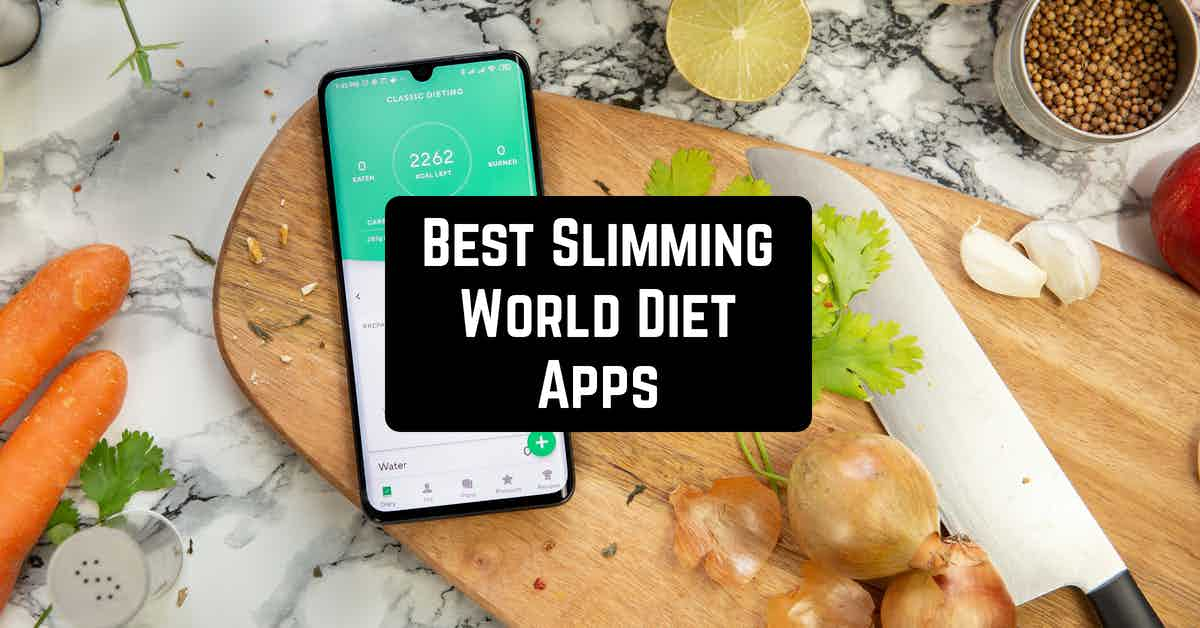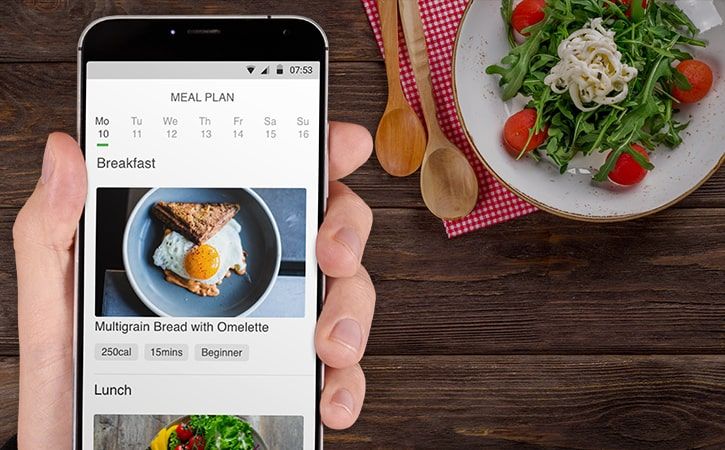Diet apps are revolutionizing the way we approach weight management and healthy eating, offering a plethora of features and functionalities to help users achieve their health goals. From tracking calories to providing personalized meal plans, diet apps have become an indispensable tool for individuals seeking to improve their nutrition and overall well-being.
In this comprehensive guide, we delve into the dynamic world of diet apps, exploring the market overview, user needs and motivations, app features and functionality, data collection and analysis, integration with other health and fitness tools, and the challenges and opportunities shaping the industry.
Join us as we uncover the transformative power of diet apps and empower you to make informed choices about your health journey.
Market Overview
The global diet app market is projected to reach USD 14.3 billion by 2027, exhibiting a CAGR of 18.6% during the forecast period. The rising prevalence of obesity and chronic diseases, coupled with increasing health consciousness among individuals, is driving the demand for diet apps.
As of 2023, there are over 200 million active diet app users worldwide. The majority of users are women, aged between 25 and 44 years old. The key trends driving the growth of the diet app market include the integration of artificial intelligence (AI) and machine learning (ML) for personalized recommendations, the rise of intermittent fasting and ketogenic diets, and the increasing popularity of wearable fitness trackers and smartwatches.
Key Market Players
Some of the key players in the diet app market include MyFitnessPal, Noom, WW (Weight Watchers), Lose It!, and Fooducate. These companies offer a wide range of features, including calorie tracking, meal planning, personalized recommendations, and community support.
Challenges and Opportunities
One of the major challenges facing the diet app market is the high churn rate. Many users abandon diet apps after a short period of time due to a lack of motivation or support. Another challenge is the need for accurate and personalized recommendations.
Diet apps need to be able to tailor their recommendations to each user’s individual needs and preferences.
Despite these challenges, there are also a number of opportunities for growth in the diet app market. The increasing popularity of wearable fitness trackers and smartwatches is creating new opportunities for diet apps to integrate with these devices and provide users with more comprehensive and personalized recommendations.
User Needs and Motivations

Diet apps have gained immense popularity in recent years due to their ability to address various user needs and motivations. These apps provide a structured and personalized approach to weight management, offering a range of features that cater to different dietary goals and lifestyles.
The primary reasons why people use diet apps include:
- Weight loss:Diet apps help users track their calorie intake, monitor their progress, and stay accountable for their eating habits.
- Improved nutrition:These apps provide access to nutrient-rich recipes, personalized meal plans, and guidance on healthy eating.
- Increased physical activity:Many diet apps integrate with fitness trackers and offer workout plans to support users’ weight loss goals.
- Community support:Diet apps often feature online communities and forums where users can connect with others who are on similar journeys.
The different types of users and their specific needs include:
- Beginners:Newcomers to dieting who need guidance and support to make healthy changes.
- Intermediates:Individuals who have some experience with dieting but seek additional motivation and accountability.
- Advanced users:Experienced dieters who require advanced features such as macro tracking and personalized meal planning.
Psychological factors also play a role in diet app usage. These factors include:
- Motivation:Users who are highly motivated to lose weight or improve their health are more likely to use diet apps consistently.
- Self-efficacy:Individuals who believe in their ability to succeed with dieting are more likely to stick with diet apps.
- Emotional eating:Diet apps can help users identify and address emotional triggers that lead to unhealthy eating.
Understanding the user needs, motivations, and psychological factors that influence diet app usage is crucial for app developers to create effective and engaging experiences that support users in achieving their weight management goals.
App Features and Functionality

Diet apps offer a wide range of features and functionalities designed to support users in their weight loss or healthy eating journeys. These features can be categorized into several key areas, including tracking, meal planning, social support, and educational content.
The benefits of these features lie in their ability to simplify the process of weight management by providing users with tools and resources that make it easier to monitor their progress, stay motivated, and make healthier choices. However, it’s important to note that the effectiveness of these features can vary depending on individual needs and preferences.
Tracking
- Calorie tracking:Allows users to monitor their daily calorie intake by logging their meals and snacks. This feature can help users identify areas where they may be overconsuming calories and make adjustments accordingly.
- Macronutrient tracking:Similar to calorie tracking, but focuses on the breakdown of calories into carbohydrates, protein, and fat. This feature can help users ensure they are consuming a balanced diet.
- Exercise tracking:Allows users to log their physical activity and track the calories burned. This feature can help users stay motivated and accountable for their exercise goals.
Meal Planning, Diet apps
- Recipe search:Provides users with access to a database of healthy recipes that meet their dietary preferences and goals.
- Meal planning tools:Assist users in creating customized meal plans that fit their calorie and macronutrient needs. These tools can save time and reduce the stress of meal preparation.
- Grocery list generator:Automatically generates a grocery list based on the user’s meal plan, making it easier to purchase the necessary ingredients.
Social Support
- Community forums:Provide a platform for users to connect with others who are also on a weight loss or healthy eating journey. These forums can offer motivation, support, and a sense of community.
- Online coaching:Allows users to connect with a registered dietitian or other qualified professional for personalized guidance and support.
- Challenges and competitions:Create a sense of friendly competition and motivation among users, encouraging them to stay on track with their goals.
Educational Content
- Nutrition articles:Provide users with evidence-based information on nutrition, weight loss, and healthy eating. This content can help users make informed choices and debunk common myths.
- Videos and podcasts:Offer engaging and accessible ways for users to learn about nutrition and weight management. These resources can make the learning process more enjoyable and effective.
- Interactive quizzes:Test users’ knowledge on nutrition and healthy eating habits. These quizzes can be a fun and educational way to reinforce key concepts.
Data Collection and Analysis
Diet apps collect a variety of user data, including dietary intake, exercise habits, weight, and body measurements. This data is used to create personalized meal plans, track progress, and provide feedback. Diet apps may also use data to connect users with other users for support and motivation.
The ethical implications of data collection by diet apps include concerns about privacy, security, and the potential for discrimination. It is important for diet apps to have clear and transparent privacy policies that explain how user data is collected, used, and shared.
Data Personalization
Diet apps can use data to personalize user experiences in a number of ways. For example, apps can:
- Create personalized meal plans based on user preferences, dietary restrictions, and goals.
- Track user progress and provide feedback on areas for improvement.
- Connect users with other users for support and motivation.
- Provide tailored recommendations for healthy recipes and exercise routines.
Integration with Other Health and Fitness Tools

Integrating diet apps with other health and fitness tools can enhance user experience and support comprehensive health management.
Benefits of Integration
- Data sharing:Allows for seamless exchange of data between tools, providing a holistic view of health metrics.
- Personalized recommendations:Integration enables apps to leverage data from other tools to provide tailored nutrition and fitness recommendations.
- Improved accountability:Tracking data across multiple tools fosters accountability and motivation.
Challenges of Integration
- Data privacy concerns:Integration requires data sharing, which raises concerns about privacy and security.
- Compatibility issues:Different tools may use varying data formats or protocols, making integration challenging.
- User experience:Ensuring a seamless and intuitive user experience during integration is crucial.
Case Studies of Successful Integrations
- MyFitnessPal with Fitbit:Integrates nutrition tracking with activity data for comprehensive calorie management.
- Lose It! with Garmin:Connects with Garmin devices to automatically sync calorie burn and step count.
- Noom with Apple Health:Leverages data from Apple Health to provide personalized nutrition and lifestyle guidance.
Challenges and Opportunities: Diet Apps

The diet app industry is constantly evolving, with new challenges and opportunities emerging all the time. Some of the key challenges facing the industry include:
- Competition:The diet app market is highly competitive, with a large number of apps vying for users’ attention.
- User engagement:Keeping users engaged with their diet apps is a challenge, as many people lose interest after a short period of time.
- Data accuracy:Diet apps rely on users to input their food and activity data, which can lead to inaccuracies.
- Regulation:The diet app industry is largely unregulated, which can lead to concerns about the accuracy and safety of some apps.
Despite these challenges, there are also a number of opportunities for growth and innovation in the diet app industry. Some of these opportunities include:
- Personalization:Diet apps can be personalized to meet the individual needs of each user, which can improve engagement and results.
- Integration with other health and fitness tools:Diet apps can be integrated with other health and fitness tools, such as fitness trackers and calorie counters, to provide a more comprehensive view of a user’s health and fitness.
- Artificial intelligence:Artificial intelligence can be used to improve the accuracy and effectiveness of diet apps, by providing personalized recommendations and insights.
- Gamification:Gamification can be used to make diet apps more engaging and fun, which can improve user retention.
The future of diet apps is bright. As technology continues to evolve, diet apps will become more personalized, accurate, and effective. They will also become more integrated with other health and fitness tools, and they will use artificial intelligence to provide users with personalized recommendations and insights.
Ultimate Conclusion

As the future of diet apps unfolds, we can expect continued innovation and advancements that will further enhance their ability to support users in their quest for healthier lifestyles. Whether you’re looking to lose weight, manage a specific dietary condition, or simply improve your overall nutrition, diet apps offer a valuable resource to guide you on your journey towards optimal well-being.
Common Queries
What are the key benefits of using diet apps?
Diet apps offer a range of benefits, including calorie tracking, meal planning, personalized recommendations, progress tracking, and support from a community of like-minded individuals.
How do diet apps collect and use my data?
Diet apps collect data on your food intake, activity levels, and other health-related information. This data is used to personalize your experience, provide insights into your eating habits, and track your progress over time.
Are diet apps effective for weight loss?
Diet apps can be effective for weight loss when used in conjunction with a healthy diet and exercise program. They provide tools and support to help you track your progress, stay motivated, and make healthier choices.
